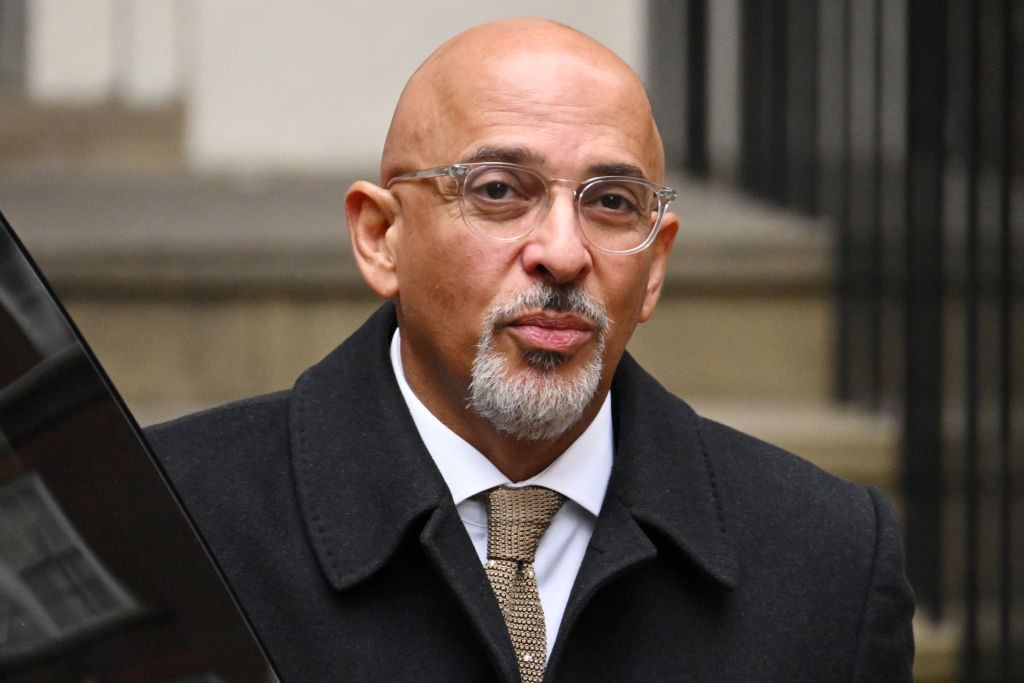Nadhim Zahawi has this morning been sacked as Conservative party chairman. The Prime Minister made the decision to remove Zahawi from his government after an investigation by the Prime Minister’s independent ethics adviser found he had breached the ministerial code over his tax affairs. On receiving the report earlier today, Sunak decided that Zahawi could not remain in post now ‘it is clear that there has been a serious breach of the Ministerial Code’: ‘As a result,’ the PM wrote, ‘I have informed you of my decision to remove you from your position in His Majesty’s Government’.
The row over Zahawi’s tax affairs has been going on for weeks, with Sunak even defending him earlier this month at Prime Minister’s Questions, suggesting the matter had been resolved. However, further reports – and Zahawi’s admission that his settlement with HMRC had included a penalty reported to be in the region of a million pounds – led to Sunak changing tack. The PM announced earlier this week that his independent adviser on minister’s interests, Sir Laurie Magnus, would look into the matter.
Should Sunak have acted sooner?
In his report – sent to the Prime Minister this morning – Magnus finds multiple breaches of the Ministerial Code. Magnus says that after Zahawi’s appointment as Chancellor in July, Zahawi completed a declaration of interests form which initially contained no reference to the HMRC investigation. While Zahawi later went on to reference it, Magnus says that ‘by failing to declare HMRC’s ongoing investigation before July 2022’ Zahawi failed to meet the requirement in the ministerial code ‘to declare any interests which might be thought to give rise to a conflict’.
Furthermore, the report finds a second failure of the Code on the issue of the tax settlement and penalty agreed with HMRC. Magnus says Zahawi ‘failed to update his declaration of interest form appropriately after this settlement was agreed in principle in August 2022’. He says Zahawi’s failure to disclose this information to the Cabinet Office meant there was no-one in the system to inform the Prime Minister when appointing him to government of the potential issue. In conclusion, Magnus, says ‘these omissions constitute a serious failure to meet the standards set out in the Ministerial Code’.
Should Sunak have acted sooner? That’s the charge from the opposition. No. 10 say that he made the decision that Zahawi must go as soon as he had read the report. In truth, the writing has been on the wall for some days now. No. 10 changed the language around Zahawi’s position in recent days – and ministers have been openly discussing potential successors. It was hard to find a figure in government who thought Zahawi would cling on.
It’s telling that Sunak has chosen to remove Zahawi rather than push him to resign. Some in government had hoped Zahawi would resign days ago so as to bring the matter to a close sooner. In his letter to Zahawi, Sunak points to the words in his first speech in Downing Street after becoming Prime Minister:
‘I pledged that the Government I lead would have integrity, professionalism and accountability at every level’.
Sunak says this has been his guiding principle in handling the whole affair.
But as the PM continues to face questions on whether he was warned about the risks of appointing Zahawi (allegations No. 10 robustly denies) and with another investigation due back in the coming weeks regarding bullying allegations against Deputy Prime Minister Dominic Raab, the row is not yet over (as I write in this week’s cover piece). The hope in No. 10 will be that by moving quickly on receiving the report and sacking Zahawi, Sunak is showing that he can make difficult decisions when needed. That’s just as well, given there are plenty more coming up the track.







Comments